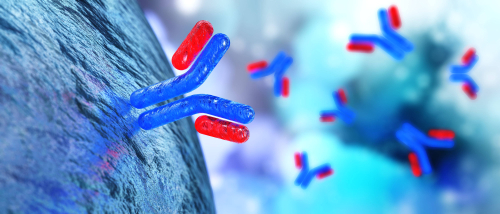
With funding from the United States National Institute of Allergy and Infectious Diseases (NIAID), the COVID-19 Prevention Network (CoVPN) announced this week that it will undertake two phase 3 trials to determine the efficacy of monoclonal antibodies (mAbs) against SARS-CoV-2.
SARS-CoV-2 is the virus responsible for COVID-19, which has infected more than 20 million people worldwide and killed more than 737,000 since its discovery in December 2019. mAbs are lab-made proteins designed to help bodies fight infection.
“Monoclonal antibodies may have the immediate potential to prevent COVID-19 acquisition,” said Dr. Myron Cohen, CoVPN co-principal investigator and director of the Institute for Global Health at the University of North Carolina at Chapel Hill. “This is especially important among groups most at risk of COVID-19, such as the older adults, those with underlying health conditions, and those at high risk of exposure because someone in their household is infected.”
The trials will consist of CoVPN 3501 and 3502. The first will take an Eli Lilly and Company mAb and evaluate its efficacy among those living or working in nursing and assisted living facilities. Some 2,400 participants will be involved. The second trial will evaluate REGN-COV-2, a Regeneron Pharmaceutical double mAb combination that will be tested among approximately 2,000 participants to weigh its ability to prevent infection among household contacts with close exposure to recently diagnosed COVID-19 patients.




